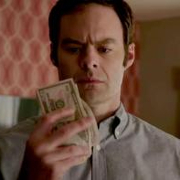|
Barry posted:If your current savings buffer is only 3 months, I'd hold off on investing until you're gainfully employed and then invest. You never know how long you might be unemployed. Perfect, thanks. 
|
|
|
|

|
| # ? Jun 12, 2024 09:50 |
|
tentish klown posted:I can see from reading through the thread that here everyone seems to rate expense ratios higher than pretty much anything, regardless of what the fund is or what its goals are. I'm looking at this in a bit more depth than the 'x% equities, y% debt, z% money markets/FX' model that seems to be common... Because you pay that percent yearly even if mutual fund performed badly that year. It's essentially unnecessary risk that you are taking, and it's equivalent to not diversifying. There is little economic evidence to suggest that actively managed funds will turn more profit than cheap funds representing the whole market with low expense ratios. There is a lot of evidence to suggest the opposite.
|
|
|
|
Is this the thread to talk about long term investments besides stocks? Or is there a better thread for that? I'm personally at a point where I have a bunch of money in my 401k, and I have a bunch of money in cash, and also I think that buying a house is really loving stupid. I have some friends in similar situations; we've been brainstorming and shooting around ideas, and I would like to expand that discussion to the internet, so here I am. If this isn't the thread for that kind of discussion, I might just open a new one.
|
|
|
|
District Selectman posted:Is this the thread to talk about long term investments besides stocks? Or is there a better thread for that? Yes. TLDR: Read the OP. If that isn't enough for you, then read one of the novels in that list which all effectively say the same thing which is to invest in index funds that have extremely low expense ratios. The rest is constructing a good asset allocation between Cash, Bonds, and Stocks. That's it.
|
|
|
|
ntan1 posted:Yes. TLDR: Read the OP. If that isn't enough for you, then read one of the novels in that list which all effectively say the same thing which is to invest in index funds that have extremely low expense ratios. The rest is constructing a good asset allocation between Cash, Bonds, and Stocks. That's it. I should clarify, when I said "stocks", I meant stocks/bonds/mutual funds/index funds/CD's/Money Markets, etc. I have read books like the Four Pillars of Investing. I am good on the cash, bonds and stocks front. I'm interested in discussing other long term investments that are less passive than investing in the market: commercial real estate, rental properties, investing in small businesses, funding startups, starting your own business, things like that.
|
|
|
|
District Selectman posted:I should clarify, when I said "stocks", I meant stocks/bonds/mutual funds/index funds/CD's/Money Markets, etc. I have read books like the Four Pillars of Investing. I am good on the cash, bonds and stocks front. Then you would know that the first three are probably bad ideas because they explicitly tie you to a specific sector of the economy and subject you to large risk. The startup funding idea requires insider knowledge, which would require you to have lots and lots of capital. There's another forum topic for startups.
|
|
|
|
Do we have a thread that leans more towards  investing? investing?
|
|
|
|
No, but lots of Canadians read this thread.
|
|
|
|
For Canadians, its actually quite similar, except that your asset allocation for US stocks should only be at max approximately 40% of the total stocks you have instead of 70%.
|
|
|
|
gvibes posted:I think the area where Vanguard still comes out ahead on expenses is the Target Retirement/Freedom-type funds. Just comparing Freedom 2045 to TR 2045, Freedom is at .76% while TR is at .18% This is correct. On fidelity I actually have a blend across my accounts of FFFGX (target retirement at .76 exp ratio  ) )and FBIOX (biotech fund at .83% exp ratio but also up almost 30% in my trading fund) - I'll probably ultimately phase out of the target retirement fund and funnel more money into FSTVX since I can hit the minimum, not sure what to do with the biotech one though. need to keep it for a few more months at this rate though for longterm cap gains. Still not really sure what I should do with excess cash knocking around in my checking. I guess I should just do the same as my long term retirement funds, pick an index fund and let it do whatever.
|
|
|
|
ntan1 posted:Then you would know that the first three are probably bad ideas because they explicitly tie you to a specific sector of the economy and subject you to large risk. The startup funding idea requires insider knowledge, which would require you to have lots and lots of capital. There's another forum topic for startups. So put it all in stocks, bonds and cash then? Nothing else? Are you personally comfortable with that investment strategy for the rest of your life?
|
|
|
|
District Selectman posted:So put it all in stocks, bonds and cash then? Nothing else? Are you personally comfortable with that investment strategy for the rest of your life? Yes. ntan1 fucked around with this message at 03:58 on Apr 30, 2013 |
|
|
|
I work for a small business that doesn't offer a 401k, so aside from investing in a Roth IRA where should my savings go? I finally built up a solid emergency cash fund and feel like I should actually start thinking about investing for the future.
|
|
|
|
CannonFodder posted:I work for a small business that doesn't offer a 401k, so aside from investing in a Roth IRA where should my savings go? I finally built up a solid emergency cash fund and feel like I should actually start thinking about investing for the future. You're SOL on other tax advantaged plans for retirement if you have a W2. Taxable Savings Account. If you don't have a W2, then SEP-IRA.
|
|
|
|
CannonFodder posted:I work for a small business that doesn't offer a 401k, so aside from investing in a Roth IRA where should my savings go? I finally built up a solid emergency cash fund and feel like I should actually start thinking about investing for the future. If your job doesn't offer a 401(k) then I don't think there are any other tax advantaged accounts you can take. You should still save more if able, and can invest the money in taxable accounts. Thread favorite Vanguard lets you open up a taxable account and invest in the same funds you get in an IRA. Keep in mind that there are going to be certain asset classes that would be best put in a taxable or nontaxable account (REITs, for example, pay dividends as regular taxable income and should go in a tax-advantaged account).
|
|
|
|
If there are any other Scandinavians reading, Nordnet launched an awesome product a few weeks ago. You set up a monthly transfer to your account, and each month a set of ETFs will be bought for ZERO brokerage fee. For example, you set up 30% to go to ETF A, 30% to ETF B and 40% to ETF C, and they're bought automatically. They also finally offer us poor Euro saps some actually good ETFs from DB X-Trackers with close to zero administration fees, such as "DB X-Trackers S&P 500 UCITS ETF" with 0.2% fee. Really neat stuff, especially compared to what SAXO (former E-Trade in Denmark) offers. They have a relatively low volume compared to stuff like SPY of course, but it's not rock bottom, and the spread is close to 0. I'm not 100% sure if they offer it in other countries, but it's available in Denmark at least.
|
|
|
CannonFodder posted:I work for a small business that doesn't offer a 401k, so aside from investing in a Roth IRA where should my savings go? I finally built up a solid emergency cash fund and feel like I should actually start thinking about investing for the future. If you have a HDHP, you can put money into a HSA. It's tax deductible and tax free going out.
|
|
|
|
|
HSAs are great if you have access to them. If you max out the contribution (about $3100) the tax deduction is rather substantial and in most HSAs you can invest in some funds once you have a balance over a couple thousand dollars. If you just leave it alone and let it grow rather than withdrawing from it for medical expenses it works almost exactly like an IRA. Plus, if you save your medical receipts you can always pull out money penalty-free if you really need to later. There's no time window on withdrawals. I pay any of my routine medical bills out of pocket and let the money in my HSA stay invested. I just keep the bills in a folder in the same place as my taxes so if I ever needed to make qualified distributions for whatever reason I have all the receipts to back it up. There's quite a bit less freedom in the kinds of investments you can make with the money in an HSA typically, but if you're already maxing out your other tax-advantaged vehicles it is a good option. Once you're 59.5 you can withdrawal from an HSA penalty-free without medical expenses, but you're also virtually guaranteed to have higher medical expenses as you age so one way or another you'll get all that money penalty-free. IMO it's better to let the HSA grow and pay out of pocket while you're young and healthy and can afford it and treat the HSA like an IRA. Guinness fucked around with this message at 17:41 on Apr 30, 2013 |
|
|
|
I didn't realize that HSA's are also tax advantaged. Is the money invested similar to a 401(k)? 401(k) seems like it would be good to max out if at all possible since it's tax advantaged and you can borrow from it if you really need the money (only having to pay yourself interest) is the best order for investing your money still 1. 401(k) for full employer match 2. Rota IRA to limit (5500$?) 3. 401(k) to limit (17,500$?) 4. HSA to limit (3100$?) Pizer fucked around with this message at 01:16 on May 1, 2013 |
|
|
|
Pizer posted:is the best order for investing your money still You contribute to your HSA on a pre-tax basis and withdraw from it without paying taxes (as long as it is for a medical expense). So, TBH, an HSA might rank up there in the number 2 spot with the right investment options. Just keep in mind that an HSA by itself by nature of withdrawal requirements is not solely a retirement account
|
|
|
Pizer posted:I didn't realize that HSA's are also tax advantaged. Is the money invested similar to a 401(k)? It depends on what provider you use, but I use http://www.hsabank.com/ which allows you to invest through a TD Ameritrade brokerage account for a fee of ~$50 a year. With it being a TD Ameritrade acount, you get like 30 commission free Vanguard ETFs. I'd put it right after Roth in that list just due to being able to withdraw contributions without penalty of the Roth.
|
|
|
|
|
So I was thinking about maxing our 401k (we already max a ROTH each) which would save us several thousands of dollars ($3000+) in taxes each year and we would still be able to afford our lifestyle. I was going to go through with it until the liberal part of my mind took over and starting thinking about how the 401k was originally a scam to get rid of pensions and to get the average man concerned the DJIA/Wall Street. Then the real reason why I decided not to go through with it was because I realized if another recession were to happen I wouldn't have any utility to take advantage of low prices on financial assets and housing. Also retirement is a long way off and taxes could (probably will) be much higher by the time I retire. I've also met too many people who went through hard times and had to blow their 401k (taking penalties) just to survive. Ugh, such pessimism. So anyway we're back to just matching the employer match (100% on 6%) and maxing our Roths which I can take the principal out of penalty free if I ever need to. Tell me why I'm dumb. Sephiroth_IRA fucked around with this message at 13:23 on May 1, 2013 |
|
|
|
First, the idea of a 401K is that you are buying at all times, low and high. You get growth out of those ups and downs. What you are doing is the absolute right thing, max out your employer match, and then max our some Roth IRAs. Many companies offer Roth 401Ks as well, if you are worried about the tax stuff. You said you could give more money to the 401K and life comfortably, what are you doing with that money right now? Do you have an emergency fund?
|
|
|
|
Yeah, I don't have any debt and we have a 6 month emergency fund, my savings goal for the year is $24,000 so we have about 13,000 leftover after we make our Roth contributions. I've read The Four Pillars but something tells me that investing so much now and expecting another late 80s / early 90s boom to happen in my lifetime is a bit unreasonable. I'm starting to think the only reason it happened was because employers got so many average people invested into the market with 401ks as opposed to some rapid innovation. Not to mention that generation is about to start retiring / selling their investments and our generation will probably make considerably less money than they did. This post from page 2 continues to haunt me as well as my other readings: Modern Life Is War posted:I recommend that everybody takes a look at the work of economist Laurence Kotlikoff. He's done a tremendous amount of work on how people spend over a lifetime. He's concluded that too many people are oversaving (and missing out on spending over prime years) and, much more visibly, too many people are undersaving. edit: Ugh, sorry for bringing all of this up. Sephiroth_IRA fucked around with this message at 14:16 on May 1, 2013 |
|
|
|
That's the right basic strategy. I would actually look at the priorities as the following, assuming you're already debt free: 6-9 month safety fund Max 401k up to employer contribution (preferably WHILE you're getting your safety fund up if possible) Max IRA Savings for things you KNOW you're going to want (car, house) Then max 401k Sure you can live your life comfortably right now, but do you have a house (if you're going to want one)? And even if you have a house, your car will only last so long. I really think everyone needs an "I'm probably going to need this money sometime in the next 5-10 years" savings they're building up. You can do this with stocks too, but personally that's a little too volatile for me to play with. One day I'll start maxing my 401k, but for now I want to make sure I'll have a good down payment for a home, and I'll need a new car within 2 years or so. I'd rather live comfortably now and be OK in my retirement than live on the edge now and be rich when I'm 65. The trick I like to play is that whenever I get a raise, I proportionally up my 401k contribution so my savings plans remain the same, I don't notice any change in my paycheck, but I'm putting more away for retirement.
|
|
|
|
I don't really understand "over-saving" and likewise don't understand the treadmill analogy. Those people are probably in such good shape BECAUSE they spend that time on the treadmill. They aren't just naturally that way and then the treadmill does nothing. As long as I'm meeting my needs and comfortable, how could I possibly be saving too much money? Obviously you shouldn't neglect your basic needs like food and shelter just so you can max out a 401k, but I don't think anybody here is doing that.
|
|
|
|
Yeah I agree. Worst case scenario, if I save "too much" but still live an acceptably comfortable lifestyle before retirement, is that I end up dying before I can spend my vast hoard of money and have to leave it to my family. Anyway, I think the key is to save enough so that you can continue living at the same standard when you retire. If you aren't saving enough for that to be possible, then I think you're undersaving. If you are saving so much that you'll have far more than you need to maintain your standard of living, that's too much in my opinion, but it's really subjective. Uranium 235 fucked around with this message at 16:59 on May 1, 2013 |
|
|
|
Even if you're saving so much that you'll have more than you need to maintain your standard of living when you retire, you can always increase your standard of living at that time. If my worst problem in retirement is "how will I spend all this money" I think I'll be ok. I'll have a lot more time to travel at that point, so I'm sure I'll find a way. The real point though, is that the only alternative to saving is spending. Sure, I could drink Krystal with dinner instead of the $10/bottle table wine I usually drink, but is that really making me any happier? I'd rather have the security of knowing I'll be ok in retirement no matter what happens. If I over-save now, then if the market bottoms out for my profession and I'm stuck working at Wal-Mart in my final years before retirement, I'm not completely screwed.
|
|
|
|
I'm actually curious on how 401k and IRA works if you are able to retire early. Lets say I luck out and some sort of investment blows up and I'm swimming in dough. Forecasting into the future I could retire at lets say 54 or something. Is all the money I've socked away into the IRA and 401k locked up until I turn 60 or 59 1/2 or whatever it is? I know I can pull it early and take an excise tax hit but this is assuming I dont do that. Also yeah I'd rather oversave and realize that I'm in a great spot 10-20 years from now vs undersave and then have to hustle the gently caress up 10-20 years from now. Yeah I may not be buying a house like all my friends right now, but at the same time I think that buying a house in CA is not exactly the best choice in this financial climate. I also dont plan to have kids for a long time so I do have a lot more freedom on where I can move etc.
|
|
|
|
BotchedLobotomy posted:I'm actually curious on how 401k and IRA works if you are able to retire early. Lets say I luck out and some sort of investment blows up and I'm swimming in dough. Forecasting into the future I could retire at lets say 54 or something. Is all the money I've socked away into the IRA and 401k locked up until I turn 60 or 59 1/2 or whatever it is? I know I can pull it early and take an excise tax hit but this is assuming I dont do that. Most people I know who retire early just suck it up and withdraw with a 10% penalty.
|
|
|
|
I think this discussion really highlights that the decision of how much to save for the future, and how much to spend now to maintain or upgrade your standard of living, is a very personal one. This makes it difficult to give people perfect instructions on what to do with their money. When people come in and say "hey guys I'm saving X amount of money and is that enough?" the correct answer is always "well, it depends on what your plans are for the near future and the far future, how tolerant of risk you are, what you care about, and so on." For some folks, the peace of mind of having a big nest egg is worth a lot. For others, spending during their youth is more important (like, if you want to do lots of global backpacking treks, which you probably can't do as much/as well when you're 65+ years old). It's OK to make a tradeoff and reduce your retirement savings if your priorities are different.
|
|
|
|
SlightlyMadman posted:As long as I'm meeting my needs and comfortable, how could I possibly be saving too much money? Obviously you shouldn't neglect your basic needs like food and shelter just so you can max out a 401k, but I don't think anybody here is doing that. Honestly this can be a real problem, I get caught up in a 'do I really need this?' mentality about everything, and can't stop thinking about the marginal cost between everything. How do you define what my basic needs are, and how do you know how comfortable is comfortable enough? Examples from my life: I like having my own place, and having privacy, but to save money share a bedroom. I like having AC in my car, but I can get by without. (south texas) I'm from texas and love steak, but rice and beans work too. I'm 30 years old, have never had any debt, make 50k, have a little under 150k set aside, and have no idea how to decide what a reasonable standard of living is.
|
|
|
|
SlightlyMadman posted:I don't really understand "over-saving" and likewise don't understand the treadmill analogy. Those people are probably in such good shape BECAUSE they spend that time on the treadmill. They aren't just naturally that way and then the treadmill does nothing. There's two ways to look at oversaving. The macro perspective and the individual utility perspective (which are somewhat linked). At the macro level, the goal of economic policymakers is to find the right set of incentives to correctly balance market behavior in terms of labor performed, wages spent, money saved, and capital invested. The right balance of those will lead to a virtuous cycle of growth, the wrong balance will lead to a spiral of contraction and recession. So if we say that consumers are over-saving, it implies a less-than-optimal level of consumption or investment for a desired rate of growth. This is what tax cuts, stimulus packages, credits, and other policy tools are aimed to address; to encourage consumers to spend or invest more than their current levels. The fundamental point is that money spent on goods/services or invested will lead to growth, while money left idle will lead not, and consumers can either be saving too much or too little. On the individual level, if you could imagine the value (in terms of utility to you, not price) of the goods and services you purchase today as well as the value of goods and services purchased at some specified future date, then you can also imagine some combination of consumption that maximizes your total utility. This, then, implies a level a present consumption and a level of future consumption that can be achieved by balancing spending today and saving (or investing) money to be spent in the future. For every dollar you have, you should be spending X% of it today and saving Y% for the future in such a way that it maximizes value to you. Spending and saving any other amount would result in less than the maximum value to you, thus if we say someone is oversaving, it means that their current level of saving is not maximizing their utility. Hope this is clear.
|
|
|
|
I see, so this is more from the perspective of the economy I'm participating in, not me personally. So by over-saving, I'm effectively a drain on the economy because I'm pulling money out but not doing anything with it? I hate to sound like a deadbeat, and am far from any sort of Rayndian "I got mine" ideal, but from my perspective I don't see why I'm obligated to spend money just because it's given to me. Most of that money is being invested in 401k and IRA accounts so it ultimately ends up in stocks anyways, so it's not just sitting there, although I can certainly understand we'd be in trouble if everyone invested in companies but stopped buying their products.
|
|
|
|
I know this isn't what you're asking, but I would never, ever, ever wring my hands over my individual bearing upon the economy at large. You are basically the proverbial drop in the ocean.
|
|
|
|
You are not obligated to spend money on consumer goods but ultimately, the economy is consumption-driven. If everyone suddenly adopted an unusually high saving rate, even if it is invested in 401ks and the like, the economy would nosedive. But to think of it as an obligation is too much. In the end, you do not and likely never will make enough money to personally have an effect on the economy as a whole so the macro view is really irrelevant to any one person's individual choice or situation.
|
|
|
|
BotchedLobotomy posted:I'm actually curious on how 401k and IRA works if you are able to retire early. Lets say I luck out and some sort of investment blows up and I'm swimming in dough. Forecasting into the future I could retire at lets say 54 or something. Is all the money I've socked away into the IRA and 401k locked up until I turn 60 or 59 1/2 or whatever it is? I know I can pull it early and take an excise tax hit but this is assuming I dont do that. If you're swimming in enough dough to retire early, why would you want to touch your 401k or IRA? It wouldn't be money you need so there is no incentive to withdraw early. I don't understand why anyone would even consider this unless you found something with a guaranteed return greater than the hit you're going to take for withdrawing early. If you knew of some investment like that, then you should charge millions and still not be worrying about your 401k or IRA.
|
|
|
|
BotchedLobotomy posted:I'm actually curious on how 401k and IRA works if you are able to retire early. Lets say I luck out and some sort of investment blows up and I'm swimming in dough. Forecasting into the future I could retire at lets say 54 or something. Is all the money I've socked away into the IRA and 401k locked up until I turn 60 or 59 1/2 or whatever it is? I know I can pull it early and take an excise tax hit but this is assuming I dont do that. Roth IRA/Roth 401k. You can withdraw contribution amounts without penalty. Also taxable investments.
|
|
|
|
totalnewbie posted:You are not obligated to spend money on consumer goods but ultimately, the economy is consumption-driven. If everyone suddenly adopted an unusually high saving rate, even if it is invested in 401ks and the like, the economy would nosedive. It's not an obligation. It's policy-speak for "our bundle of incentives to get consumers to spend as much as we would like them to is not calibrated properly and we need to fix it". In that sense, "People are Oversaving" is an observation, not an obligation. The choice is always yours. But, if your payroll taxes went down by 2%, you might be more inclined to buy a new car without even thinking about it from a macro perspective. I do want to emphasize that the other definition of oversaving, the personal one, is probably more relevant to individual decisionmaking. In that sense, one could say "You are saving too much and not spending enough".
|
|
|
|

|
| # ? Jun 12, 2024 09:50 |
|
|Ziggy| posted:If you're swimming in enough dough to retire early, why would you want to touch your 401k or IRA? It wouldn't be money you need so there is no incentive to withdraw early. I don't understand why anyone would even consider this unless you found something with a guaranteed return greater than the hit you're going to take for withdrawing early. If you knew of some investment like that, then you should charge millions and still not be worrying about your 401k or IRA. I was assuming the investment that blows up is in my tax advantaged account so it wouldnt be something liquid. Basically I'd have a big ole 401k, enough to retire at X age before 60. Sounds like most people just take the hit though or work it out one way or another. Was just thinking aloud I suppose. v
|
|
|


























